According to the National Science Foundation’s 2019 Women, Minorities and Persons with Disabilities in Science and Engineering report, Computer Science has one of the lowest shares of women degree recipients among the broader fields of science and engineering.
UVA Engineering is beating these odds, and by a wide margin. The Chronicle of Higher Education ranked UVA sixth in the nation for its percentage of women earning bachelor’s degrees in computer science – 29.5%, compared to the national average of 18%.
Part of this success results from the school’s efforts to create a learning culture geared to be inclusive of women. UVA Engineering’s computer science program has focused on creating non-gender biased curriculum and mentoring programs to encourage diversity.
One reason UVA Engineering appeals to women is that the school’s mission is to make the world a better place. Research shows that women and people from other groups traditionally underrepresented in science, technology, engineering and math fields seek opportunities to make a difference.
But what do computer science students themselves think is driving strong interest from women in UVA computer science? We asked these future female computer scientists why they chose UVA Engineering.
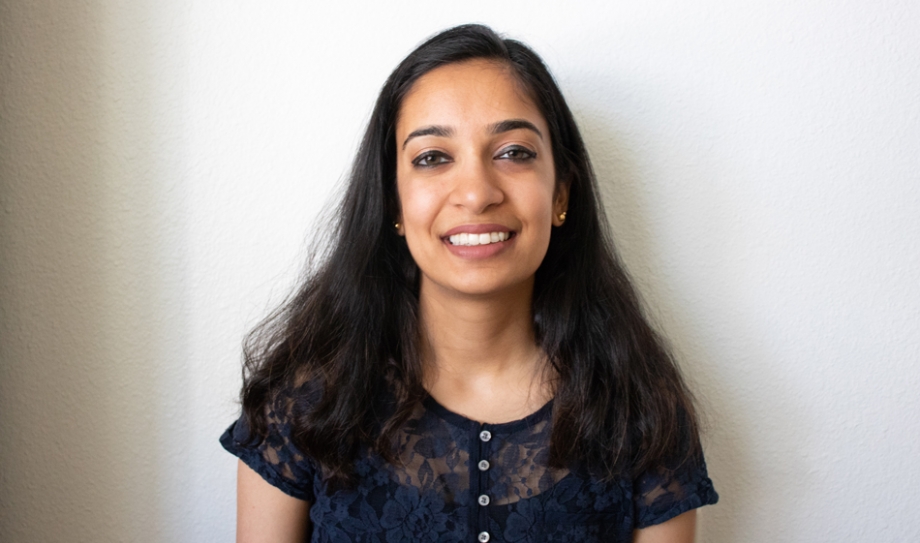
Question: How did you become interested in studying engineering in general and/or computer science in particular?
Answer: I became interested in engineering due to my many high school math and science courses, along with the support of engineering role models in my family. I also attended a NASA-sponsored summer program where I got to learn about engineering and the space industry. At that point, I really grew passionate about studying engineering and decided to go to engineering school. Once I was accepted at UVA Engineering, the classes in computer science really resonated with me, so I chose computer science as my major.
Q: Why do you think UVA is a place where women students, in higher proportions than many other U.S. universities, choose to study engineering in general and computer science in particular?
A: UVA Engineering has incredible female professors who serve as excellent role models for female students. Additionally, the support from the professors creates a positive and open environment for all students, making us feel valued. The professors also demonstrate an appreciation for education.
Q: Although UVA and other institutions have worked diligently to welcome women to engineering/computer science, much work remains to level the playing field. What do you think colleges and universities can do better to accelerate progress in this regard?
A: Universities can encourage male professors and students to be supportive of female professors and students in order to empower their success. Male engagement is crucial for progress so that females do not feel inferior, but able to compete with their male counterparts.
Q: When you leave UVA, what contribution do you hope to make to the world?
A: I hope to serve as a role model to younger girls who want to enter the STEM fields. I co-organized the Ladies in the Lab event at UVA, where Alpha Omega Epsilon sorority invited middle and high school female students to complete engineering design activities. This event was an engineering showcase that had the purpose of getting young female students interested in STEM fields at an early age so that they pursue STEM fields in college. I hope to continue mentoring female students through these types of events when I graduate from UVA.
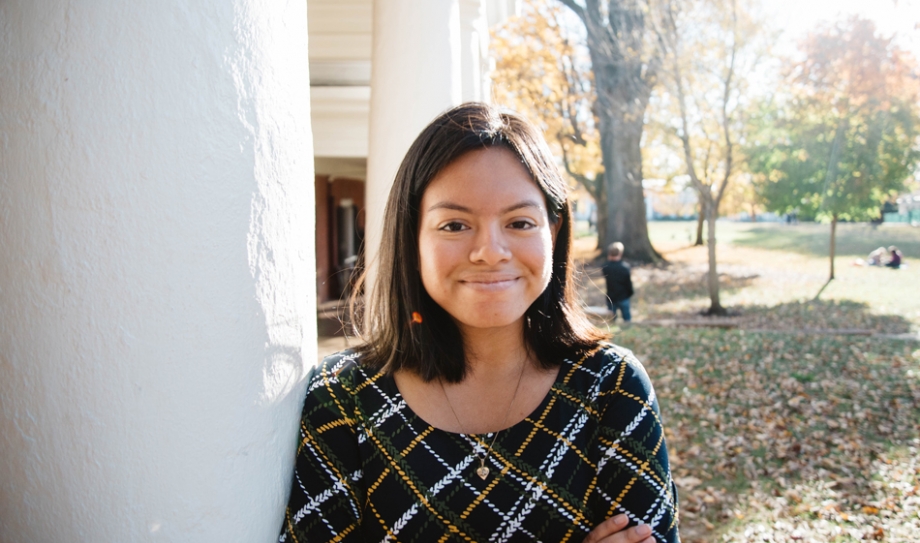
Q: How did you become interested in studying engineering in general and/or computer science in particular?
A: It happened during my Introduction to Programming course. I had never thought of studying computer science because I didn't see many people within the field who looked like me. However, when I took this class, I realized I could do the assignments, and the course material interested me so much that my concerns faded. During that year, I had also taken a data science course with HackCville, which showed me how much more you can do with computer science as a major.
Q: Why do you think UVA is a place where women students, in higher proportions than many other U.S. universities, choose to study engineering in general and computer science in particular?
A: I think it's due to the community of women who support each other to do more. One such group is Women in Computing Sciences; women in these types of groups are always giving each other encouragement. Whenever I would start to doubt my ability to be in this field, I had amazing people — professors and students — show me I can still move forward.
Q: Although UVA and other institutions have worked diligently to welcome women to engineering/computer science, much work remains to level the playing field. What do you think colleges and universities can do better to accelerate progress in this regard?
A: One way would be to hire more women faculty. I know the University has attempted to do so in the past, but there are not as many female professors in the field. A very effective solution would be to demonstrate to both the local community and students on Grounds that computer science is a field that they are able to pursue. UVA could provide workshops and create collaboration between minority communities and UVA Engineering students to show middle and high school students that computer science, or engineering in general, is possible for them as a career. It would also be a good to offer even larger computer science classes, so that more students could have the opportunity to take the courses.
Q: When you leave UVA, what contribution do you hope to make to the world?
A: I'm not totally sure what I want to do once I leave UVA. However, at the end of my career, I hope to have helped bridge the gap of minority communities and their involvement in STEM fields. Whether this is through education or creation of programs within the company where I work, I would like to see more people of different backgrounds and experiences feel like they can and should belong in the STEM field.
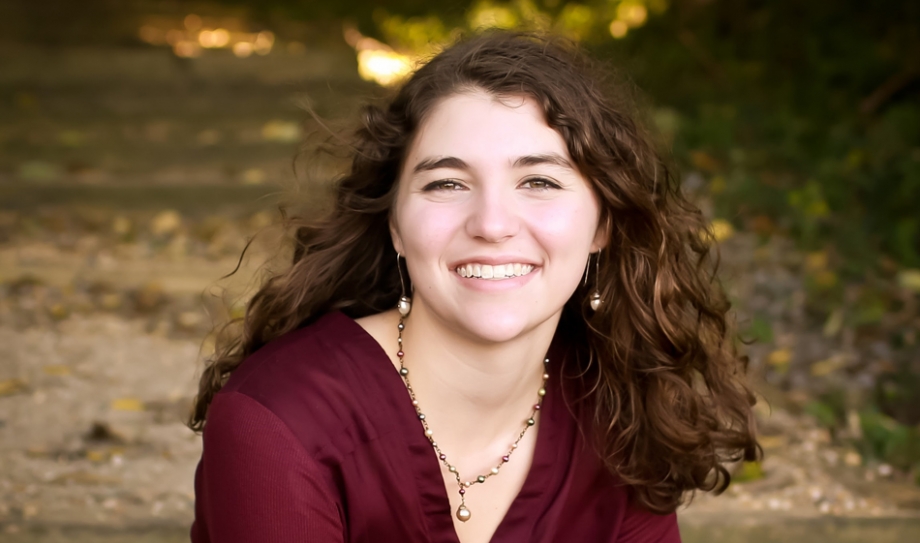
Q: How did you become interested in studying engineering in general and/or computer science in particular?
A: I first became interested in computer science in middle school when I started asking questions about how the technology we use every day works behind the scenes. Computer science classes were not offered at my high school, so I started learning HTML and CSS on my own through various online resources such as Codecademy. I even started a technology club for girls to come together and learn coding as a group. Upon entering college, I furthered my interest in computer science by joining Women in Computing Sciences and attending hackathons. These experiences allowed me to learn and network with a variety of people so that I could envision myself majoring in computer science. Members of Women in Computing Sciences encouraged me, and I chose computer science as my major with their support and advice.
Q: Why do you think UVA is a place where women students, in higher proportions than many other U.S. universities, choose to study engineering in general and computer science in particular?
A: UVA was right for me because it offered several majors I was exploring, including computer science. As a first-year, I was undecided on a major. I eventually selected computer science as my major, and I can say that I don’t feel alone as a woman in any of my classes. I can look across the room and see women in my classes. Women in Computing Sciences has provided me with many opportunities to network and get advice from other women in their third and fourth years of study at UVA Engineering.
Q: Although UVA and other institutions have worked diligently to welcome women to engineering/computer science, much work remains to level the playing field. What do you think colleges and universities can do better to accelerate progress in this regard?
A: For novices, universities should have a course covering the basics of how the technology we use every day works behind the scenes. This will give students confidence in the foundational skills needed for more advanced classes. This novice path would also help beginners become comfortable interacting with more experienced peers.
More women faculty and strong female mentors are needed so that women can see themselves in a space where they are not commonly represented. Universities need to continue to encourage and support diversity-oriented organizations for those who are not commonly visible in the technology industry. We should also foster interest in young girls and expose them to the world of computer science at an early age. This can be done through mentorship programs with local schools.
While progress is being made in the technology field, we still have a long way to go in terms of shaping the culture of the technology industry to be more inclusive of diverse minds and in fostering the growth of women in this field. Change will come for young girls when companies and universities create spaces where women feel welcome to make mistakes and grow and learn in the technology field.
Q: When you leave UVA, what contribution do you hope to make to the world?
Ultimately, I want to do something that matters and makes a difference in the lives of people by empowering other women, writing policy/law and coding. I am passionate about the intersection between technology, law and policy. I will continue fostering inclusive spaces for women in the technology industry and serve as a mentor for future generations of women in this space.

Q: How did you become interested in studying engineering in general and/or computer science in particular?
A: I originally began as a Physics major, because I was fascinated by the logical processes and the possibility to gain a deeper understanding of the universe. However, I quickly learned that my disinterest in math and my interest in physics weren't complementary. As I was learning this, I was taking an introduction to computer science course. The logic and ability to learn about and interact with the world around me was still present without the barrier of math. From there it was a matter of experimentation to find my niche in security and hardware from a computer science perspective.
Q: Why do you think UVA is a place where women students, in higher proportions than many other U.S. universities, choose to study engineering in general and computer science in particular?
A: I think a large reason for the popularity of the computer science program is the ability to earn either a Bachelor of Arts or a Bachelor of Science. As mentioned before, I was not particularly interested in advanced math courses, and I found that the typical engineering degree did not provide me with enough creative license to take classes such as poetry, creative writing, and foreign languages. The flexibility of being able to choose between the two degrees gives students more options for pursuing a computer science degree and makes it a more appealing option.
Q: Although UVA and other institutions have worked diligently to welcome women to engineering/computer science, much work remains to level the playing field. What do you think colleges and universities can do better to accelerate progress in this regard?
A: I think it is incredibly important to have professors who are women. Having a role model and mentor in computer science who is a woman provides inspiration as well as a shared place of understanding. I also think it's important to continue fostering and funding clubs for women in the field. These clubs provide knowledge and opportunities for the various conferences, networks, and professional organizations that are available to women in the field.
Q: When you leave UVA, what contribution do you hope to make to the world?
A: I hope to solve interesting technical challenges with a mission of helping others.
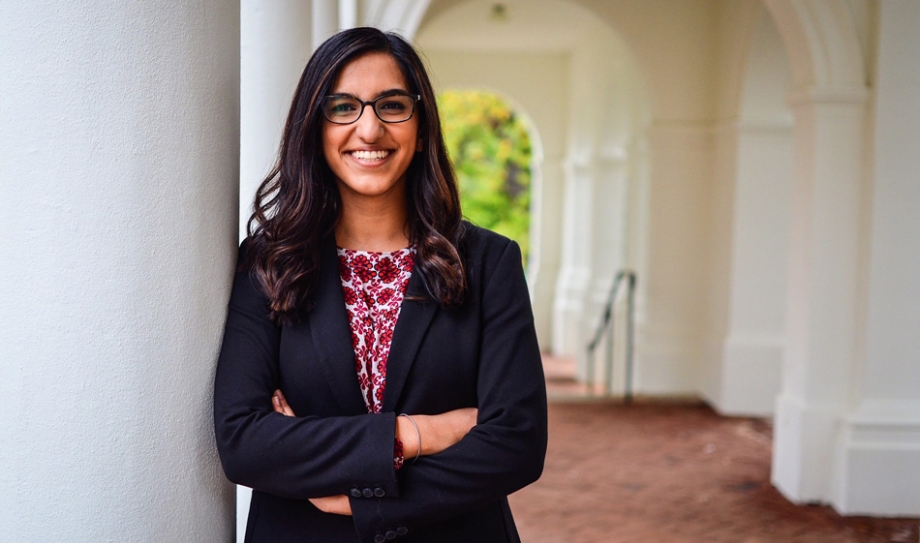
Q: How did you become interested in studying engineering in general and/or computer science in particular?
A: When I started college, I didn’t know what I wanted to study. My career aspirations had changed several times between high school graduation and starting college, so I decided to take a variety of different courses. I took Introduction to Programming with professor Ibrahim my first semester, and it was the only class that I looked forward to going to every day. I loved the course content, and especially enjoyed the end-of-semester game project. Ultimately, I ended up choosing computer science because I learned that I’m a person who enjoys solving problems and building things. I don’t think I would have known that if I hadn’t tried something outside of my comfort zone in my first year.
Q: Why do you think UVA is a place where women students, in higher proportions than many other U.S. universities, choose to study engineering in general and computer science in particular?
A: I think UVA Engineering does a great job of fostering interest in computer science outside of the classroom. From hackathons to student-led clubs to interesting courses, there are plenty of opportunities to learn more about computer science in a positive, fun, and supportive environment.
Q: Although UVA and other institutions have worked diligently to welcome women to engineering/computer science, much work remains to level the playing field. What do you think colleges and universities can do better to accelerate progress in this regard?
A: I think the most effective way universities can further level the playing field is to reflect student diversity in academic faculty. When universities hire diverse faculty members, especially female computer science faculty members, it can help students feel like this is a welcoming field of study. Additionally, I think it’s important for universities to offer students the ability to learn more about their field outside of the classroom environments. I’ve been fortunate enough to attend several technical conferences over my time here at UVA, and found that the experience of learning from professionals, specifically female professionals in software engineering, was incredibly valuable for my career development. I hope UVA will offer similar opportunities for students in the future.
Q: When you leave UVA, what contribution do you hope to make to the world?
A: I chose to study computer science because I love solving problems and building things. As I embark on a career in software engineering, my hope is that I can produce software that has tangible benefits to people around the world. I want to create software that helps real people solve real problems, and I hope that my experiences inside and outside of the classroom here at UVA will enable me to make that impact.
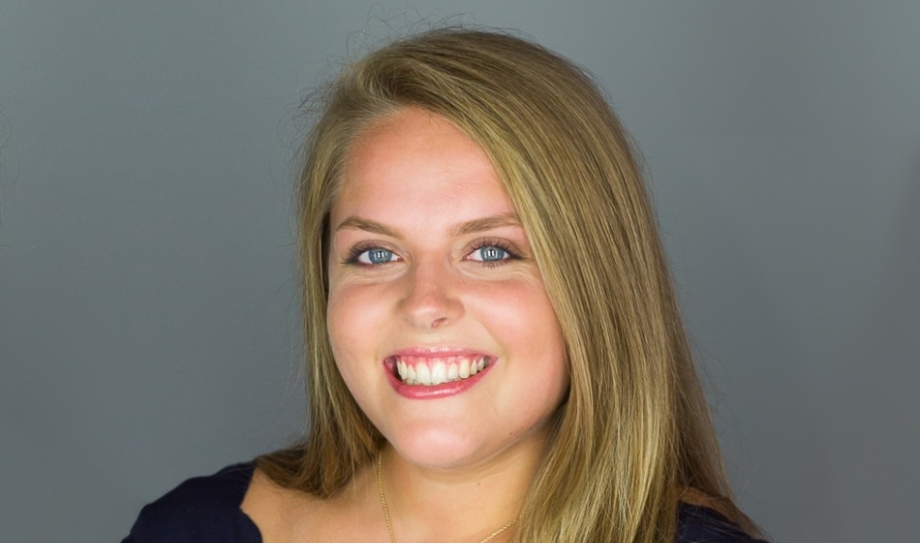
Q: How did you become interested in studying engineering in general and/or computer science in particular?
A: I began to study computer science and cybersecurity in high school, and I became enthralled with the logic and problem-solving aspects of computer science. I began to imagine the infinite possibilities of computer science programs and all the problems we could theoretically solve with computer science, as well as the satisfaction one gets when completing a functioning program. When I got to thinking about how amazing it would feel if I could build something that would actually help people, I decided I needed to go into the field of computer science.
Q: Why do you think UVA is a place where women students, in higher proportions than many other U.S. universities, choose to study engineering in general and computer science in particular?
A: At UVA, I have always felt completely supported as a woman in the field of computer science, and I think that is one reason why many women choose to study engineering and computer science here. The proportion of women in both engineering and computer science at UVA is quite a bit larger than at most other schools, and I think this difference is tangible in my day-to-day life. As a woman in computer science, I feel included and celebrated at UVA.
Q: Although UVA and other institutions have worked diligently to welcome women to engineering/computer science, much work remains to level the playing field. What do you think colleges and universities can do better to accelerate progress in this regard?
A: I agree that although UVA is leaps and bounds ahead of many schools, there is always work to be done increasing diversity and inclusion in the engineering and computer science programs. The most important thing that can be done in this regard is increasing representation among faculty. It is sometimes hard for women to break into the field if they do not have people like them advocating to disrupt the status quo, as well as inspiring and encouraging them to give the field a try. Having more female role models and mentors in the computer science department would empower female students to reach their full potential and have confidence in their abilities as computer scientists.
Q: When you leave UVA, what contribution do you hope to make to the world?
A: After I leave UVA, I hope that I can create something using computer science that will benefit the world in a positive way. I think that I will likely work in the public sector for some period of time, either in cybersecurity or software development. Although I am not exactly sure where computer science will lead me, I know that I want to help inspire others to learn more about computer science who may not have otherwise had the opportunity to do so.